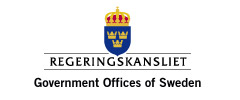Sustainable Agriculture
One of the four key thematic areas of the ELA program
12.03.2009 |Gero Fedtke
Organic AGRICULTURE meets SUSTAINABLE sanitation
For the majority of the rural population in EECCA countries the food they manage to produce on their plots of land forms an important part of their diet. But much knowledge is lost, fertilizers are expensive, pesticides are being used improperly. For small farmers, access to markets poses a major problem.
In South Kyrgyzstan, the NGOs ULGU and Mehr-Shavqat are addressing these problems. ULGU selected 27 farmers in 3 villages who formed farmersí groups. They were trained in organic farming, including inter alia using urine as a fertilizer, crop rotation, biological methods of plant and animal protection. Three demonstration centers have been set up and workshops have been held with 145 participants. Mehr-Shavqat trained eight farmer self-help groups with 120 members in sustainable agriculture, small business and gender. Integrating ecological sanitation, 40 members constructed dry toilets, putting the reuse of nutrients into practice and demonstrating its effectiveness.
Similar approaches are applied by the NGO SEMA in Georgia, which also contributes to biodiversity conservation by growing old Georgian varieties of lentils and grains in addition to market oriented crops.
Alternative pest management in Armenia
In Armenia, the NGO AWHHE implements integrated agricultural projects together with farmers from project villages. Demonstration fields and orchards show the positive effects of crop rotation and fertilizing with biohumus. Demonstration orchards prove that phytotherapy is superior to available pesticides, not only reducing risks for farmers, consumers, and the environment, but also fighting off pests more effectively and thus making better harvests possible.
Seed potatoes in Georgia
In Javakheti, a remote mountain region in Georgia, the local NGO Paros works towards increasing agricultural income. Farmers have been struck severly by the isolation and decline after the breakup of the Soviet Union. But because of the high altitude, the region is perfectly suited to producing seed potatoes. With combined expert support from ELA partner SEMA and through WECF, organic seed potato production was established, as well as organic farming of other crops. Already in the first year, the project made profit that is invested in further projects.
Contact:
gero.fedtke@wecf.eu
This article is part of the ELA annual report 2008.
Related News
Meet the Winners of the Gender Just Climate Solutions Award at COP24
On the 70th anniversary of the Universal Declaration of Human Rights, we awarded Gender Just Climate Solutions Winners at the climate negotiations in Katowice, Poland
11.12.2018
Invitation: Gender Just Climate Solutions Award 2018
10 December, COP24 Katowice
04.12.2018
Getting to the Future We Want
4-7 November, Brussels: European Environmental Bureauís (EEB) Annual Conference
12.11.2018
GoodFood4All
WECF and partners all over Europe start GoodFood4All Campaign
06.11.2018
#Ruralwomen: join our Women2030 campaign!
15.10.2018






































